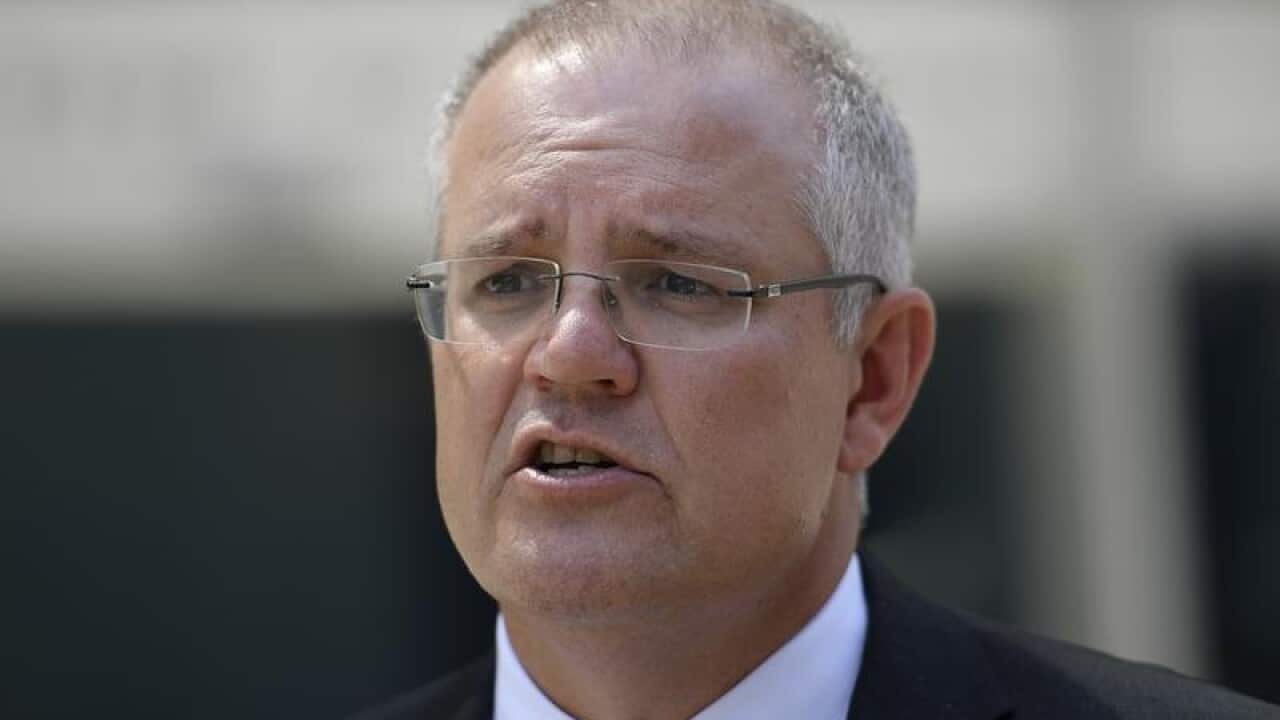The Coalition has stepped up its negotiations with key crossbenchers to secure passage of its company tax cuts, with just two independent senators likely to decide the fate of the government’s signature economic policy.
The government wants to pass the bill this week in the final parliamentary sitting before the May budget.
The bill would reduce Australia’s tax on companies from 30 to 25 per cent, phased in over the next 10 years.
Treasurer Scott Morrison said the government would continue meetings with key crossbench senators this week. With Labor and the Greens opposed, it needs nine of the 11 crossbench senators to sign on to the plan.
“At the moment we haven't got the requisite nine and we will continue to work hard on that over the course of the week," Mr Morrison told reporters in Canberra on Monday.
"We've been in this situation before and we're not counting anything, we're just going through the process we always do methodically, patiently, respectfully and working with the crossbench.”
Senator Pauline Hanson, who controls three Senate votes, told Sky News last week she was “not convinced” but had an “open mind” on the bill, which is again listed on the Senate notice paper for debate this week.
“I’m actually talking to the government, I’ve got an open mind about this,” the One Nation leader said.
The two remaining Nick Xenophon Team senators are opposed, while independents Cory Bernardi, David Leyonhjelm and Fraser Anning, a former One Nation candidate, are likely to support the plan.
That means there could be just two remaining senators that decide the fate of the tax cuts: Tim Storer, who replaced Nick Xenophon but has fallen out with the party, and Steve Martin, who replaced Tasmania’s Jacqui Lambie but has also fallen out with the party.
Senator Hinch has said his support would depend on some guarantee that tax cuts would be passed down to workers in the form of wages.
Liberal senator Zed Seselja confirmed the government would try to pass the bill this week. The sitting week will be shorter than usual because of Easter, only running from Monday to Wednesday.
“We have the opportunity this week, hopefully, to get this important economic reform through. This is something that would put more money in the pockets of Australians,” Senator Seselja said on Monday morning.
The opposition remains strongly opposed to the plan, rubbishing the economic argument that companies will pass on their savings to workers’ wages rather than pocketing the profit and distributing it amongst shareholders.
The company tax cut will cost the economy around $65 billion in lost tax income over the 10-year period.
“Today clearly is D-Day,” Labor senator Murray Watt said.
“Today we stand on Malcolm Turnbull and his government committing a huge crime on the Australian people.”
Minerals Council ramps up lobbying effort
The mining and resources industry lobby group the Minerals Council of Australia has commissioned new research to back the case for company tax cuts, which would directly benefit many of its member companies.
In a report prepared for the Council, the University of Calgary's Jack Mintz said Australia would lose investment and jobs to more tax attractive jurisdictions unless it reduced its corporate tax rate.
Dr Mintz says at 30 per cent, Australia's tax rate is now the 9th highest of 43 countries surveyed in his report, and is tied with Mexico as the 4th highest in the OECD.
Even taking into account US state-based income taxes in addition to its company tax rate, which was slashed to just 21 per cent earlier this year, Australia's tax rate is still 3.3 percentage points higher.
"The report also makes the point that lower company taxes allow higher compensation to be paid to workers and lower prices for consumer goods, both of which directly contribute to a higher living standard," the Minerals Council's interim chief executive David Byers said.
However, one of the government's key supporters of the tax cut, Liberal Democrat senator David Leyonhjelm, doesn't believe it will lead to more jobs or higher wages and instead will only protect existing jobs and investment.
- with AAP

